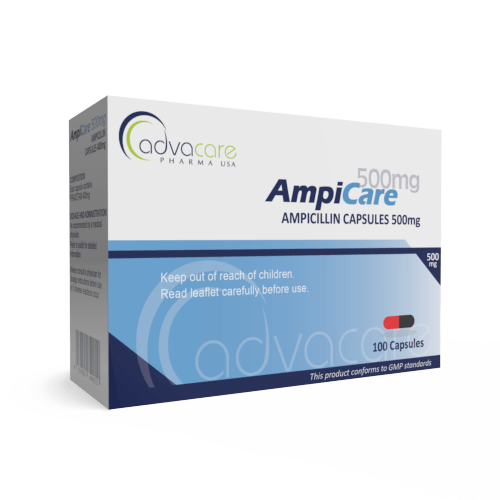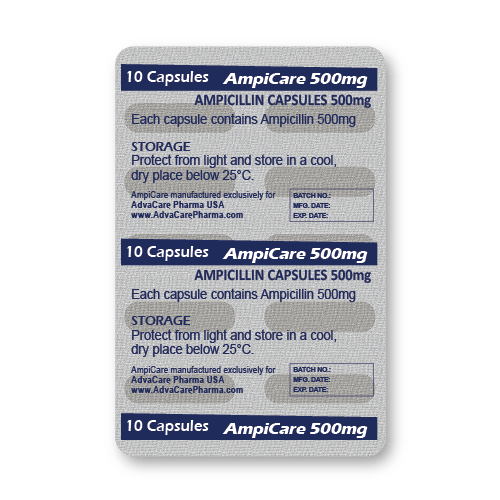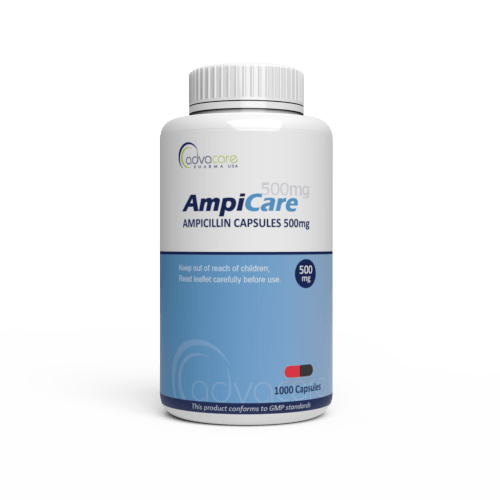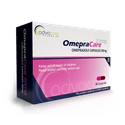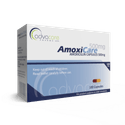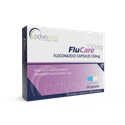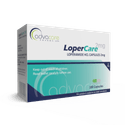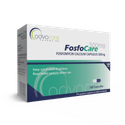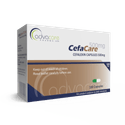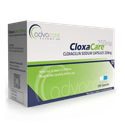- Home›
- Pharmaceuticals›
- Capsules›
- Ampicillin Capsules
Ampicillin Capsules
Dosage
Packaging
What is Ampicillin?
Active Ingredients: Ampicillin Trihydrate
Ampicillin Capsules is a penicillin antibiotic drug used to prevent and treat certain bacterial infections, such as respiratory tract infections, urinary tract infections, meningitis, salmonellosis, and endocarditis. It may also be used to prevent group B streptococcal infection in newborns. This antibiotic can be used for treating various Gram-negative and Gram-positive bacteria, as well as some anaerobes.
Ampicillin, like all antibiotics, is not useful for the treatment of viral infections.
Ampicillin trihydrate is classified as a broad-spectrum, semi-synthetic, beta-lactam penicillin antibiotic. The active ingredient works by interfering with the action of the penicillin-binding proteins of the bacteria's cell wall. This weakens the cell wall and causes the bacteria to die.
This penicillin beta-lactam antibiotic has in vitro activity against Gram-positive and Gram-negative aerobic and anaerobic bacteria. The bactericidal activity is through the inhibition of the cell wall synthesis in bacteria and the drug is efficient due to the binding to penicillin-binding proteins (PBPs). This antibiotic is stable against hydrolysis by a variety of penicillinases, cephalosporinases, and extended-spectrum beta-lactamases. After binding to the specific penicillin-binding proteins (PBPs), which are located in the bacterial cell wall, it inhibits the third and last stage of bacterial cell wall synthesis. Then, the mediation of cell lysis is by bacterial cell wall autolytic enzymes known as autolysins. Ampicillin might interfere with an autolysin inhibitor.
All penicillin antibiotics are distributed rapidly in the extracellular fluid of most tissues. This antibiotic might even cross the placenta, and it is detectable in the milk of nursing mothers. This antibiotic is especially efficient in places of inflammation. This antibiotic is stable in the acid content in the stomach. After oral administration, peak concentrations in plasma occur after 1-2 hours, depending on the dose. Only 20% of Ampicillin is bound to plasma proteins.
Then, the antibiotic is rapidly excreted in urine and reaches the highest levels in urine. The excretion is via renal glomerular and tubular routes in the urine. The plasma half-time is longer in older patients. In individuals with renal impairments, the half-time can be around 20 hours. Healthy patients metabolize 20% of the given dose, and after 12 hours, 7% of the total dose is excreted as urine metabolites.
This drug is available in other forms, including powder for injection, powder for suspension, and in combination with Cloxacillin, and Sulbactam Sodium (powder for injection). It is also available in capsule form in combination with Cloxacillin.
AdvaCare is a GMP-certified producer of Ampicillin Capsules. This medication is manufactured in our factories in China, India, and the USA. We routinely inspect our production facilities to ensure our products meet quality and safety standards.
Why are we a quality Ampicillin manufacturer?
AdvaCare Pharma is a GMP manufacturer of Ampicillin Capsules. Our strategically located facilities ensure that our company has complete control over the supply chain, meaning higher quality products and lower costs for production, transportation and importation. Over the past 20 years, we have built a solid reputation as a leading Ampicillin manufacturer, one of the 60+ products we manufacture in capsule dosage form, across 65 countries where our pharmaceutical products are distributed.
Uses
What is Ampicillin used for?
It is used to treat some types of bacterial infections, such as:
- meningitis
- respiratory tract infections
- urinary tract infections
- salmonellosis
- endocarditis
- septicemia
- gastrointestinal infections
- ear, nose, and throat infections
- peritonitis
- enteric fevers
- gynecological infections
Ampicillin may also be used to prevent group B streptococcal infection in newborns.
How are Ampicillin Capsules used?
This medication is manufactured to be taken orally. Ampicillin Capsules should be taken with a full glass of water.
What dose should be taken?
The usual dose for adults is 250-500mg.
The usual dose for children is 12.5-25mg.
The exact dosage is based on medical condition, response to the treatment, age, and weight. Refer to a doctor or pharmacist for guidelines on dosage. Do not exceed what they advise.
Who can use Ampicillin Capsules?
Ampicillin Capsules can be prescribed to anyone who suffers from bacterial infections. It should be used only if the bacteria is susceptible to this antibiotic. Special caution is advised to the specific groups of patients.
Pregnant Any medication should be avoided during pregnancy, especially in the first trimester. Antibiotics should be added only if the benefits outweigh the risks.
Lactating Women Only small quantities can be detected in breast milk, and this antibiotic should be added and prescribed by a doctor, depending on the patient’s current health status. Penicillin derivatives are considered safe during breastfeeding. However, due to the antibiotics, the nursing infant’s bowel flora might change. Allergies can also occur in some rare cases.
Neonates Premature-born infants, infants with low birth weight, and unstable gastrointestinal function might need special considerations before adding this antibiotic. The antibiotic in this form is inappropriate for young age patients. Special considerations must also be taken for mothers of these infants who take Ampicillin therapy.
Can Ampicillin Capsules help in the treatment process of viral infections?
No, Ampicillin is an antibiotic that should be only used for treating bacterial infections. Some viral infections might get complicated with bacteria, and in those cases, antibiotics can be used. Including Ampicillin Capsules is indicated only in cases when the detected bacteria are susceptible to the antibiotic. Antibiogram testing is recommended to check this.
Are only Ampicillin Capsules enough for treating bacterial infections?
In some cases with mild bacterial infections, Ampicillin is enough to treat the health issue. However, very often, patients need a supportive treatment to eliminate the infection efficiently. Probiotics are always recommended when there is a treatment with antibiotics because antibiotics might also affect the beneficial gut bacteria. Probiotics can restore the balance of the beneficial bacteria and also improve the digestion.
Antipyretics can also be added if the bacterial infection is accompanied by a fever. Some nonsteroidal anti-inflammatory drugs can also be added. If the patient experiences some type of pain, analgesics can be added. If the patient’s condition is seriously affected, it might be dehydrated. In this case, fluids and electrolytes are recommended. If any viral or fungal infections coexist, antivirals and antifungals should be added. Immunostimulators are always beneficial in cases of infections.
The additional therapy depends on the doctor’s choice and the diagnostic results.
Can everyone take Ampicillin Capsules?
No, there are special restrictions for patients that are sensitive to penicillins. When patients present with an inconsistent history of penicillin allergy, skin testing may be considered. Desensitization might be attempted in individuals with a positive skin test if there are no viable alternatives to a penicillin-type drug. However, for patients with a history of anaphylaxis to penicillin, it is generally advised to avoid other penicillins or beta-lactams with similar side chains, even during skin testing. Exceptions may be made in extremely rare circumstances when no substitute is available, and the drug can be administered under careful supervision in a controlled environment. In such cases, special precautions and desensitization protocols are essential.
Other warnings
If the patient has a renal impairment, the dose of the drug should be reduced. Treatment with Ampicillin should be cautious if the patient has developed some hypersensitivity reaction in the past to any antibiotic from the penicillin group.
Prolonged treatment with antibiotics might lead to a superinfection with non-susceptible organisms. It can also lead to diarrhea. If the patient’s condition worsens or does not improve at all, a consultation with a professional is needed.
Side Effects
As with all pharmaceuticals, some unwanted effects can occur from the use of Ampicillin Capsules.
Common side effects include, but may not be limited to:
- rash
- diarrhea
- nausea
- vaginal discharge
Seek medical attention if the following develop:
- any signs of an allergic reaction
- bloody or watery diarrhea
- flu-like symptoms (fever, chills, or swollen lymph nodes)
- shortness of breath or lightheadedness
Other adverse reactions are:
- CNS toxicity
- Nephritis
- Clostridium difficile-induced diarrhea
- Leukopenia
- Coombs-positive hemolytic anemia
- Thrombocytopenia
The most common adverse effects are hypersensitivity reactions. Patients might have anaphylaxis, urticaria, or angioneurotic edema. Other delayed reactions include rashes and exfoliative dermatitis.
For a comprehensive understanding of all potential side effects, consult a medical professional.
If any symptoms persist or worsen, or you notice any other symptoms, please call your doctor.
Precautions
Do NOT use Ampicillin Capsules if:
- You are allergic to ampicillin or other penicillin antibiotics.
- You are taking other antibiotics.
- You have mononucleosis.
- You have been recently given or will be getting a vaccine.
Possible interactions may occur with other pharmaceutical products, including methotrexate. Consult with a doctor or pharmacist about any medications you are taking before your treatment.
The use of ampicillin during pregnancy may increase the chance of miscarriage. Breastfeeding while taking ampicillin can cause sensitization. Consult a doctor or healthcare professional before taking Ampicillin Capsules.
If the treated patients do not show any health improvement within a few days, it should be reported to doctors.
Patients should inform their doctors if they are pregnant or breastfeeding before the treatment with ampicillin starts.
During the treatment, patients should not consume alcohol.
This antibiotic should be kept out of reach of children.
References
Double-blind treatment study of shigellosis comparing ampicillin, sulfadiazine, and placebo
This double-blind study evaluated the efficacy of ampicillin, sulfadiazine, and placebo. The trial included 52 infants and children who had shigellosis. Bacteriological failure in patients who received placebo was 75%, patients receiving sulfadiazine had 39% failure, while patients receiving ampicillin had 6% failure.
The conclusion of this study is that ampicillin is a safe and highly effective antibiotic.

You might be interested in...
Why AdvaCare Pharma?
As an industry leader, we are aware of our responsibility to provide affordable and sustainable solutions to improve healthcare worldwide.
